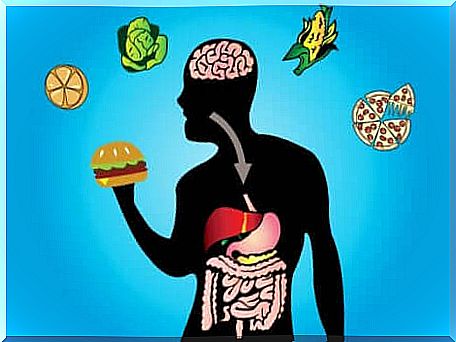Metabolic Flexibility: The Secret To Fat Burning

Metabolic flexibility is a concept that refers to the body’s ability to use the nutrients it consumes in greater proportion as an energy source.
Those who are able to activate this mechanism can lose weight more easily. On top of that, it has more muscle mass and will tend to lose less muscle over the years. This is possible because the body adapts well to the type of diet adopted.
Optimization of energy sources
When defining a weight loss diet, you need to know the sources that provide the body with the energy it needs. People with good metabolic flexibility will be better able to adapt to the nutritional resources they get from food.
For these people, a carbohydrate-rich diet is equivalent to using glucose as their main source of energy. In case of fasting, however, they will prioritize fat as an energy substrate; they will also be able to better preserve the integrity of muscle tissue.
By adopting a low-carbohydrate diet, therefore, they will begin to use fat as an energy source, conserving muscle and liver glycogen stores.
Not everyone has this ability, which is closely related to metabolic health. For this reason it is necessary to optimize the metabolism.

Metabolic flexibility depends on insulin resistance
Insulin resistance is one of the factors that distinguish metabolic flexibility. People with diabetes actually lose weight more easily on a low-carbohydrate diet.
Conversely, people who have an adequate response to this hormone are able to reduce body mass even with a diet rich in sugars. To reduce insulin resistance and improve this metabolic parameter, a series of strategies can be adopted:
- Intermittent fasting, according to an article published in the journal Aging Research Reviews . This effect can be increased by drastically reducing carbohydrates, especially simple sugars.
- Follow an interval and high intensity workout. Exercise has a positive effect on the course of some diseases, including diabetes. This is what a study published in 2015 states.
More bearable diet thanks to metabolic flexibility
Those with good health and metabolic flexibility are better able to adapt to dietary changes. An intermittent fasting pattern can yield satisfactory results; there will also be little appetite stimulation and negligible loss of lean mass.
Otherwise, instead, we opt for a restriction of sugars in the diet. A high insulin resistance, in fact, prevents you from losing weight if you consume carbohydrates in abundance while following a low-calorie diet.

Change your diet to protect your health
Sedentary people who do not exercise regularly often have other insulin resistance values. For this reason, before even considering weight loss, it is necessary to adopt strategies that help improve metabolic health.
This means reducing carbohydrates and achieving intermittent fasting; This should be combined with a program to increase strength and high intensity training where possible.
Once metabolic health is restored, a flexible diet can be considered. In this way, the body will be able to give the right priority to nutrients when it needs to produce energy.
Poor metabolic flexibility is one of the reasons why an obese person cannot lose weight and maintain muscle mass compared to a person used to playing sports. Therefore, those who want to enjoy these benefits will have to reduce the consumption of carbohydrates and increase physical exercise.









